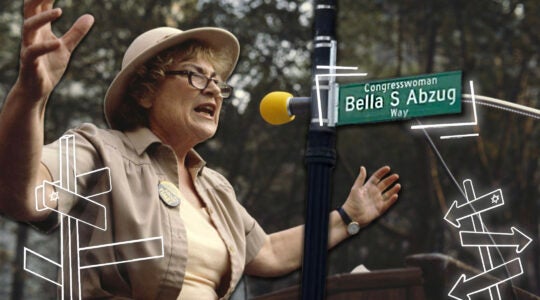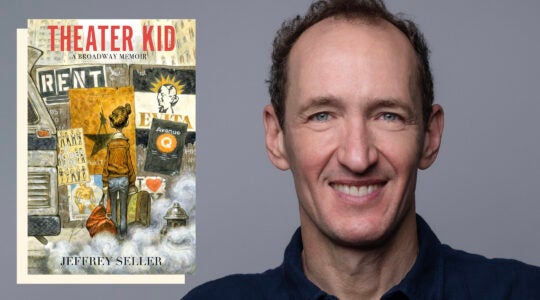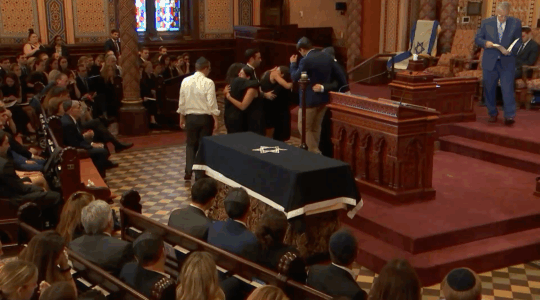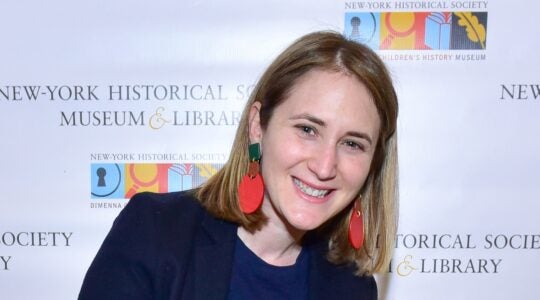Isabel Goldin, a first-generation American and marketing major at Baruch College, needed a waitress gig to support her unpaid internship at Valor International, a start-up e-commerce company. Though she wanted to focus on the job full time, her family obligations made that impossible.
“My parents never asked me for anything, but the expenses of every day living weigh on them,” said Goldin, 22, whose parents emigrated from Soviet Georgia in 1992. Her father, a former professor, was not able to transfer his Ph.D. in the United States, and her mother was diagnosed with cancer shortly after their move. Both are currently unable to work.
A realist, Goldin hopes a career in business will help her family move forward. “Money makes a difference,” she said, “some sort of paycheck is a non-negotiable for me, but internships are necessary to move your career forward.”
This summer, for the first time, Goldin won’t have to choose. Hillel at Baruch College, with support from UJA-Federation of New York and the Jewish Foundation for Education of Women (JFEW), is piloting a paid internship program for 23 Jewish women in financial need. Participants, lower income City University of New York (CUNY) students, face challenges in accessing and securing competitive internships without sacrificing necessary summer earnings.
“We don’t want these talented young women to have to choose between income and career aspirations,” said Elizabeth Leiman Kraiem, executive director of JFEW. “We’re leveling the playing field.”
The nearly $100,000 CUNY Hillel Summer Internship Program grant will include a biweekly salary for the two-month internship and will cover New York state social security and Medicare taxes for all participants. For an eight-week internship, participants received a total of $3,500, about $10 an hour.
The internships, which also include positions at NBA Coaches Association, Mount Sinai Medical School, Infinity Group and Childhood Cancer Society, were facilitated in part by the program coordinator, Amy-Louise Goldberg, an employee of Baruch Hillel.
“My job was to bring opportunities to the students’ attention,” said Goldberg, who noted that about half the students selected found the internships they wanted on their own.
According to Ilya Bratman, executive director of the Baruch College Hillel, nearly 50 students applied for 23 spots. Applicants were chosen based on academic excellence (a minimum grade point average of 3.0 was required), past participation in Hillel programming, and demonstrated financial need.
“We’re primed to provide opportunities to those who might not otherwise not have them,” he said. “Fostering growth through young women is one sure way to pay it forward.”
Similar to Goldin, a significant number of those selected came from immigrant homes.
Ilana Krugolets, 19, a media and psychology major at Hunter College, is also a first-generation American. Her parents, refugees from the former Soviet Union, moved to Brooklyn in the 1990s.
Krugolets hopes to pursue a career in television production. Through the help of the CUNY Hillel Summer Internship Program, she was able to secure a position at NYC media, the radio, television, and online media network of the City of New York.
Without the scholarship money, Krugolets said she’d be tutoring or giving singing lessons on the side to pay for her time. “Experience pays in the long term, but not the short term,” she said. “I’m grateful for the opportunity to shadow producers and editors — the connections I’m making in the industry are invaluable.”
Elisabeth Kostin, the point person from UJA-Federation responsible for the internship program, attested to the critical importance of internships for the long-term career goals of any college student.
“Young adults are finding it extremely difficult to find good jobs after they graduate from college if they haven’t already made connections in the field,” she said. “This internship program will help these young women lay the groundwork for their careers — it’s a foundation they’ll build upon for years to come.”
Bratman also said that one of the program’s goals in to instill participants with an understanding of the importance of giving back.
“We hope all of these women will go on to become philanthropists in their own right,” he said. “There’s no better way to the demonstrate the importance of these programs than by participating in them personally.”
Goldin, who has already been on the job for a month, is using the time to ask all the questions she can.
“I’m here to learn, and I know this is an opportunity I won’t get back,” she said, speaking well before 9 a.m. as she rode the subway from Brooklyn on her way into work. “For the first time in a long time, my job is my sole focus. I’m going to make it count.”
The New York Jewish Week brings you the stories behind the headlines, keeping you connected to Jewish life in New York. Help sustain the reporting you trust by donating today.




